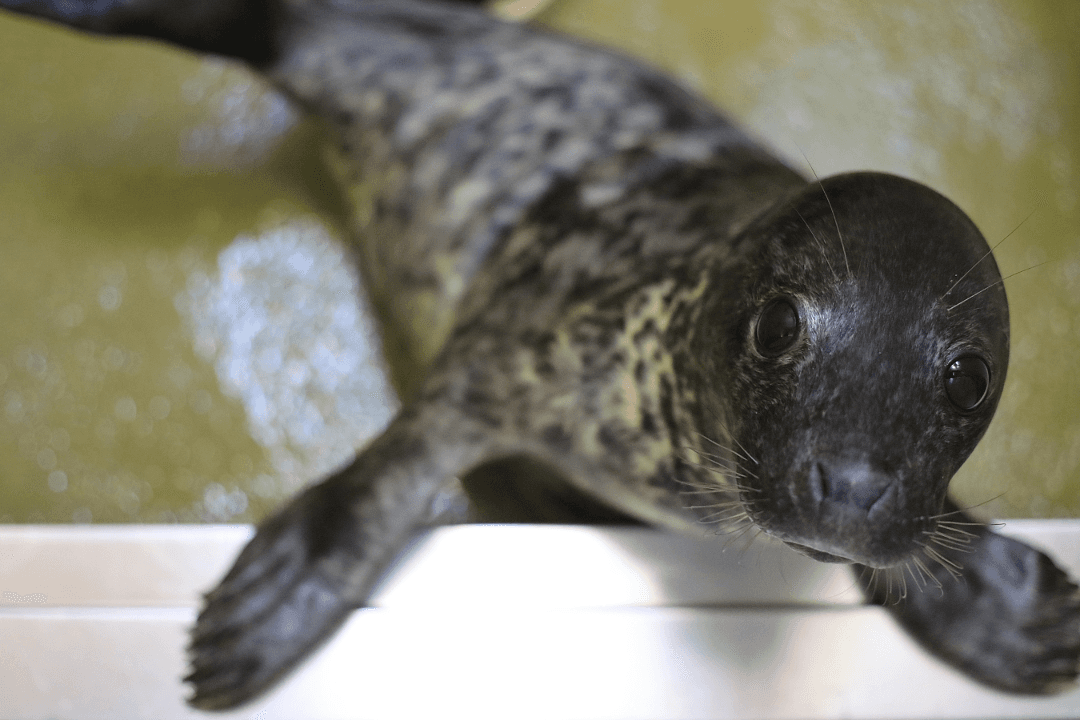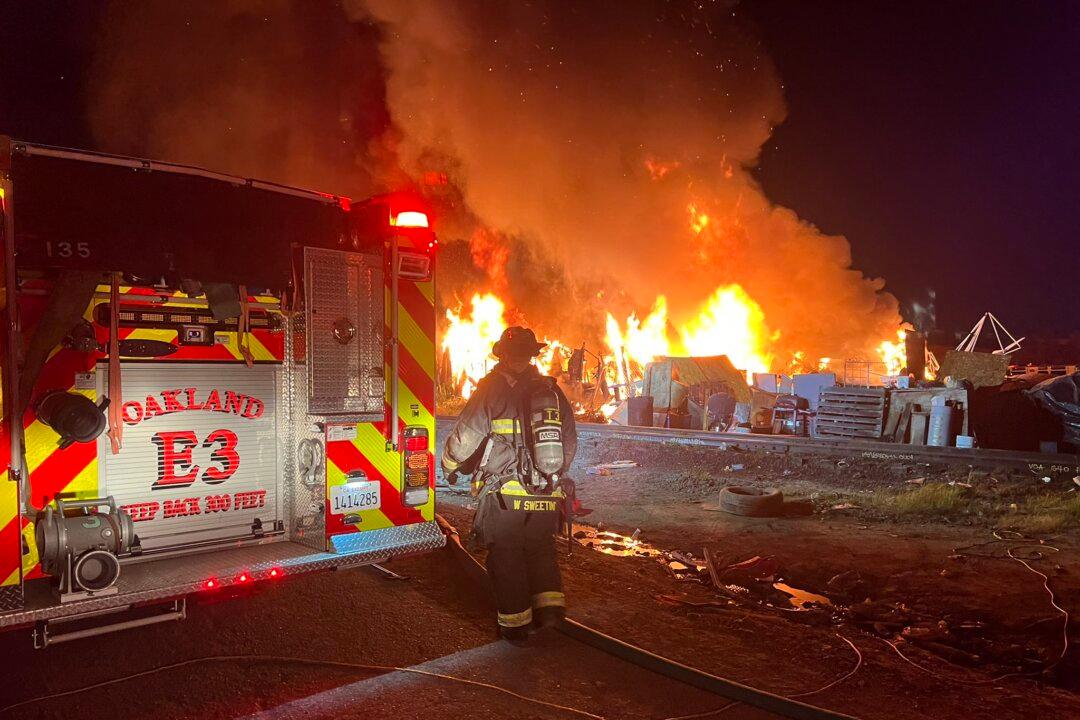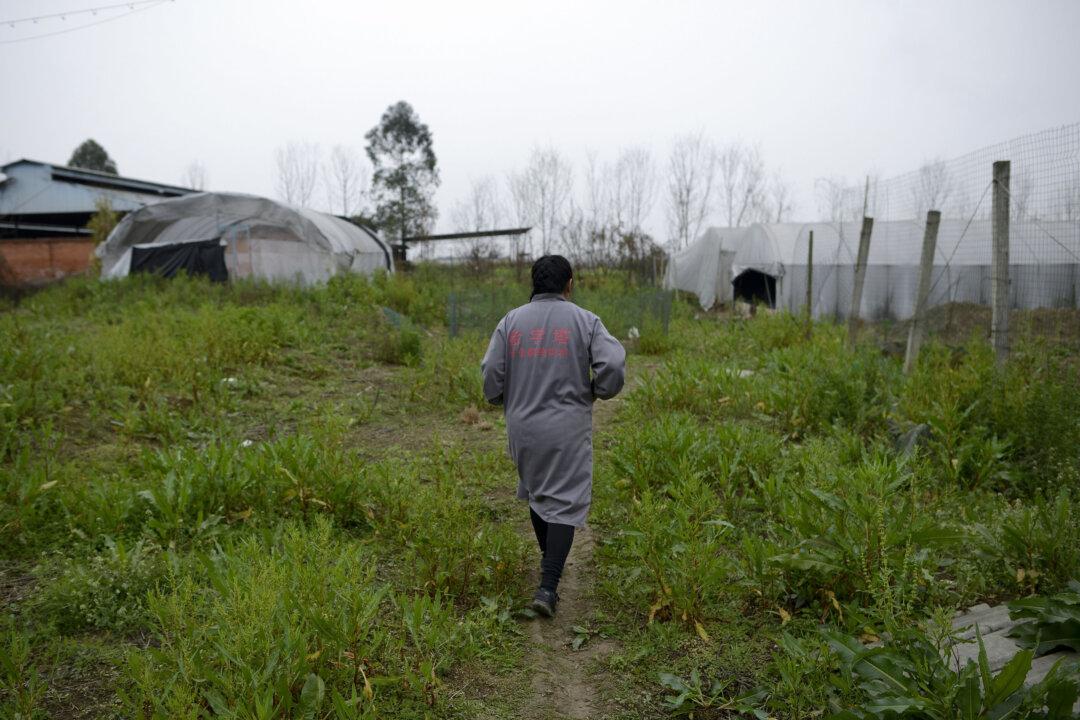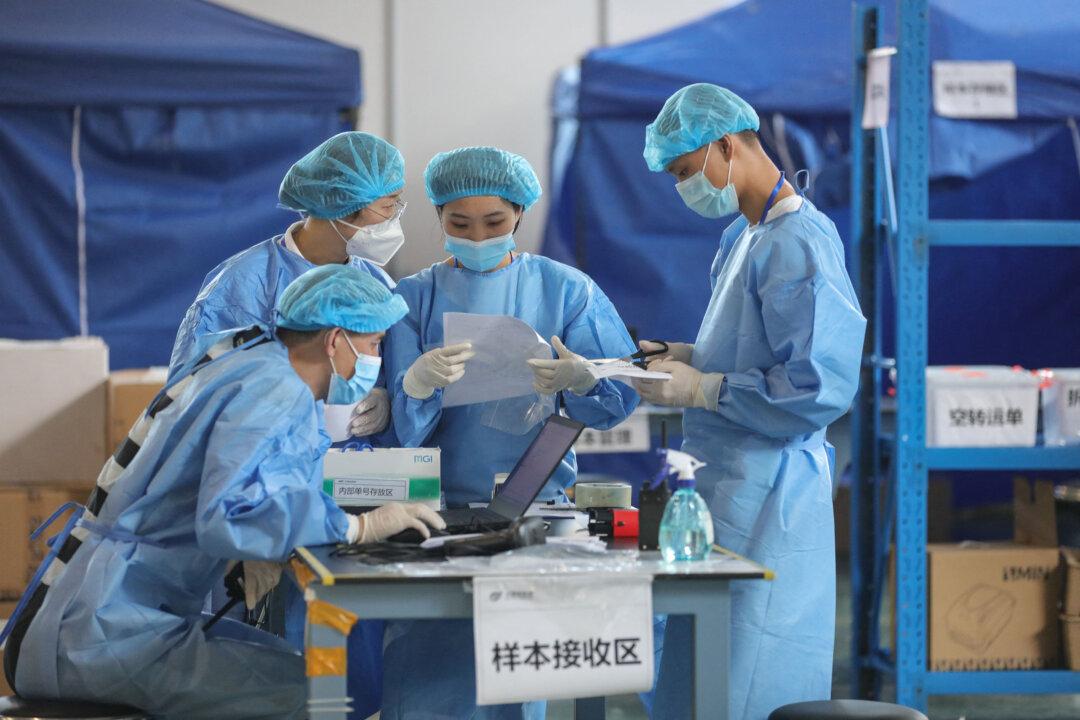One hundred baby spotted seals that had been captured by poachers were found in a poultry farm in northeastern China, according to the ChinaNews.com.
According to the report, after being found by police in Dalian, China, 29 of the seals had already died. After being taken from the farm on Feb. 11, the seals were sent to three different wildlife parks.





